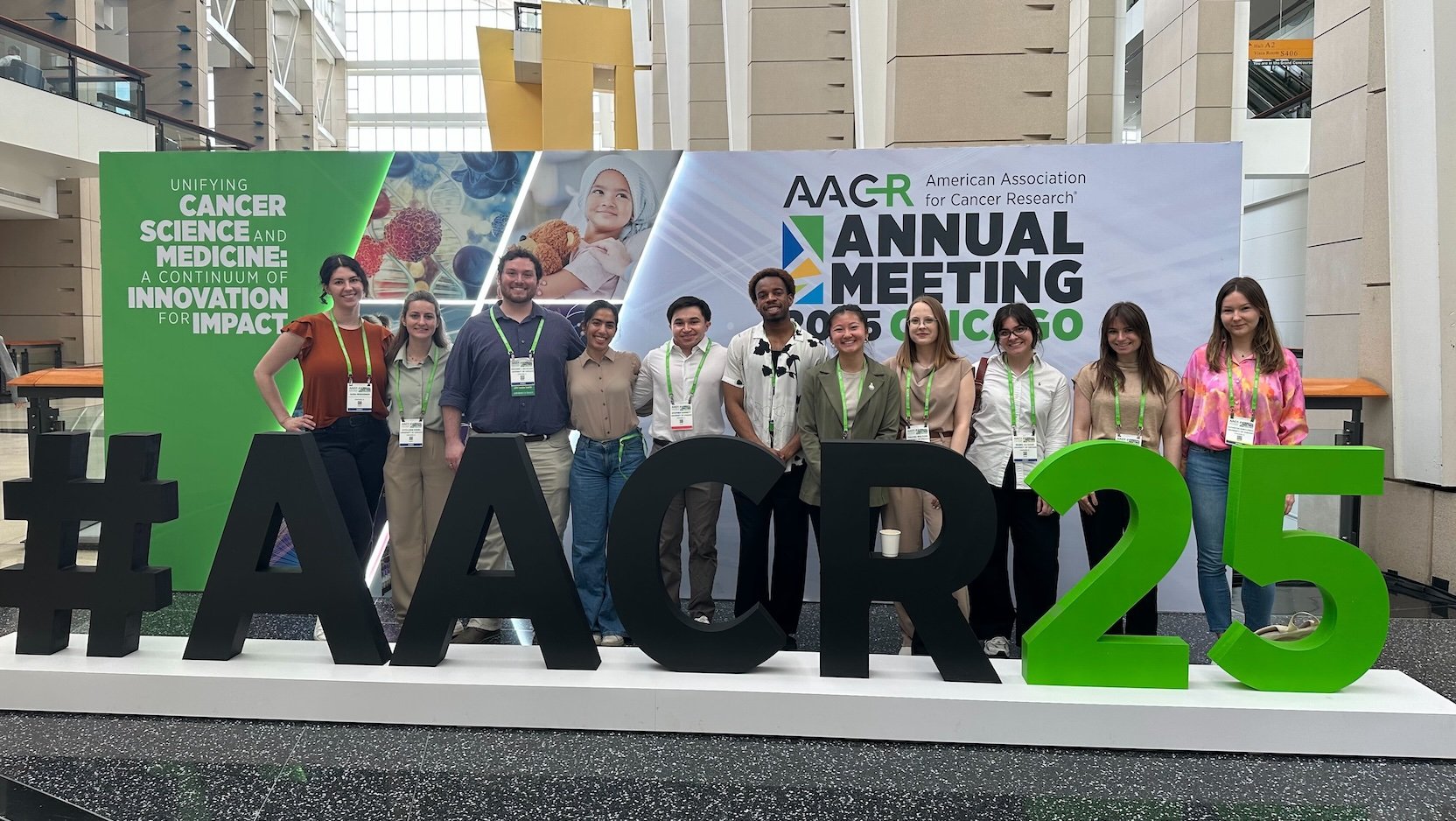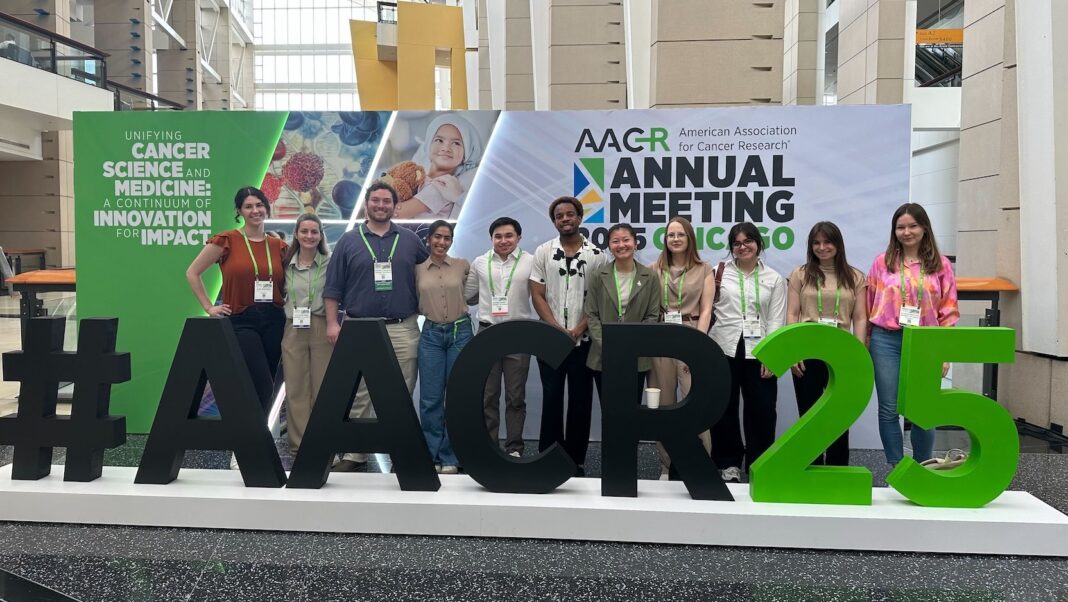“Cancer: The Unrelenting Foe of Humanity”
For decades, the scourge of cancer has ravaged humanity, leaving in its wake a trail of despair, hopelessness, and countless lives lost. The war against this formidable enemy has been long and arduous, with scientists, researchers, and medical professionals fighting valiantly to unravel the mysteries of this complex and multifaceted menace. Yet, despite the progress made, much remains to be done. The landscape of cancer research is constantly evolving, and the pursuit of breakthroughs that can translate into tangible benefits for patients has never been more pressing.

Empowering Young Students in Cancer Research
The AACR Annual Meeting provided a platform for young students to engage in cancer research and explore future opportunities in the field. The AACR Undergraduate Student Caucus and Poster Competition, held on April 26, brought together 15 trainees from the UCCCC pathway programs to present their research and compete for prizes. The event also allowed students to explore future educational and career options in cancer research. Kent Shechter received the Meritorious Honors award for his poster.
The AACR Special Program for High School Students: “The Conquest of Cancer and the Next Generation of Cancer Researchers” was held on April 29. Co-sponsored and co-organized by the UCCCC, the program aimed to inspire the next generation of researchers by encouraging student contributions to scientific discovery and sparking interest in careers in cancer science and medicine. UCCCC Deputy Director Eileen Dolan, PhD, delivered a compelling talk on the critical need for young scientists in the cancer field and highlighted the various opportunities available through the UCCCC.
Fostering International Collaborations
The UCCCC-hosted half-day campus visit for 15 participants in the 2025 AACR Global Scholars-in-Training program on April 30, provided an opportunity for international collaboration. The visiting scholars comprised graduate students, medical students, and clinical and postdoctoral fellows from across the globe, including Brazil, Argentina, Ethiopia, Ghana, India, Jordan, Malaysia, Nigeria, Pakistan, and Zambia. The event enabled them to build international collaborations with UChicago’s cancer research community.
Conference Highlights and Implications
Leadership and Expertise
Several UCCCC faculty leaders played key roles in chairing major sessions, including Everett E. Vokes, MD, who co-chaired a clinical trials plenary session that highlighted therapeutic advances in non-small cell lung cancer. Kunle Odunsi, MD, PhD, chaired the Cancer Immunology Working Group Town Hall and Networking Meeting. Samantha Riesenfeld, PhD, from the UChicago Pritzker School of Molecular Engineering, chaired a mini-symposium on the use of artificial intelligence and machine learning.
Advancing Cancer Science and Medicine
The conference highlighted therapeutic advances in non-small cell lung cancer. The critical need for young scientists in the cancer field and available opportunities through the UCCCC were also emphasized.
Conclusion
As the American Association for Cancer Research’s (AACR) Annual Meeting came to a close, it was clear that the event had achieved its mission to bring together the brightest minds in cancer science and medicine with a shared goal of driving innovation and progress for patients. The gathering showcased the latest breakthroughs in research, highlighting the remarkable advancements being made in our understanding of the disease and the development of novel treatments.
The significance of the AACR Annual Meeting cannot be overstated, as it represents a critical convergence of expertise and resources that will ultimately lead to improved patient outcomes. The meeting’s emphasis on interdisciplinary collaboration and translational research is particularly noteworthy, as it underscores the importance of bridging the gap between bench and bedside. As we look to the future, it is clear that the momentum generated at the AACR Annual Meeting will continue to propel the field forward, driving the development of more effective and targeted therapies that will benefit patients worldwide.
In conclusion, the AACR Annual Meeting was a powerful testament to the unwavering commitment of cancer researchers and clinicians to their sacred mission: to conquer this devastating disease and alleviate the suffering it inflicts on millions of people worldwide. As we reflect on the remarkable achievements and groundbreaking discoveries presented at the meeting, we are reminded of the profound impact that cancer research has on the lives of patients and families, and we are inspired to continue pushing the boundaries of what is possible in our quest to defeat cancer once and for all.
